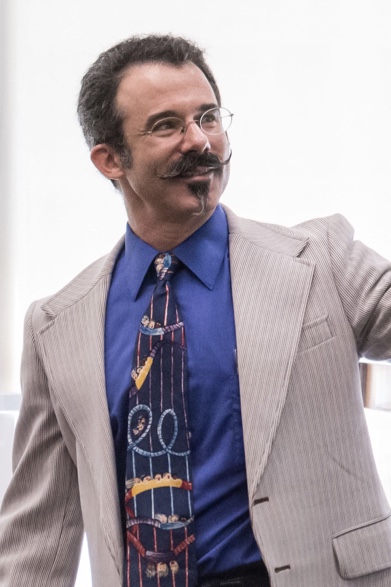
Michael Heyman
For media inquiries, please contact Media Relations
Michael Heyman is a scholar and writer of literary nonsense and children’s literature, and a professor of literature at Berklee College of Music. He teaches courses on children’s literature and music, poetry, performance poetry, nonsense literature, and arthropodiatry. His articles have appeared in the ChLA Quarterly, The Horn Book Magazine, Words Without Borders, and The Lion and the Unicorn, where he was also a four-time judge for the Lion and the Unicorn Award for Excellence in North American Poetry. He is the head editor of The Tenth Rasa: An Anthology of Indian Nonsense (Penguin 2007). His poems and stories for children can be found in The Puffin Book of Bedtime Stories (2005), The Moustache Maharishi and Other Unlikely Stories (Scholastic 2007), and This Book Makes No Sense: Nonsense Poems and Worse (Scholastic 2012), the latter of which he also edited. More recently, he was a guest editor for the nonsense literature issue of IBBY’s Bookbird (2016). He plays the saxophone, tablas, flute, and the diddlemaphone.
- Editor and contributor of poems and stories, This Book Makes No Sense: Nonsense Poems and Worse (Scholastic, 2012)
- Short stories and poetry for children and adults published in The Moustache Maharishi and Other Unlikely Stories (Scholastic), The Puffin Book of Bedtime Stories (Puffin), and Solstice: A Magazine of Diverse Voices
- Articles published in The Horn Book Magazine, Children's Literature Association Quarterly, The Lion and the Unicorn, The Five Owls, Words Without Borders, Children's Literature and the Fin de Siecle, and Keywords for Children's Literature
- Founder of the College Writing Center and the Slam Poetry program
- Consulting editor, FUSION magazine
- Four-time judge for The Lion and the Unicorn Award for Excellence in North American Poetry
- Dramaturge for NIX, a production by The Only Animal, Vancouver, Canada
- Instruments include, tenor/baritone saxophone, flute, tabla (studied with Pandit Sharda Sahai), throat singing, and diddlemaphone
- Head editor of The Tenth Rasa: An Anthology of Indian Nonsense (Penguin, 2007)
- Papers published in The Horn Book, Children's Literature Association Quarterly, The Lion and the Unicorn, The Five Owls, and Children's Literature and the Fin de Siecle
-
School NameUniversity of GlasgowCountryUnited KingdomDegreeDoctor of Philosophy (PhD)Field of StudyEnglish LiteratureDate Degree Received
-
School NameUniversity of OxfordCountryUnited KingdomDegreeMaster of Arts (MA)Field of StudyEnglish LiteratureDate Degree Received
-
School NameFranklin and Marshall CollegeState or ProvincePennsylvaniaDegreeBachelor of Arts (BA)Field of StudyEnglish LiteratureDate Degree Received
